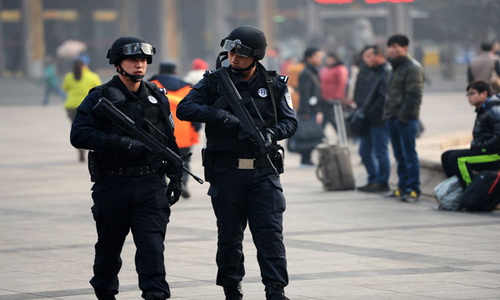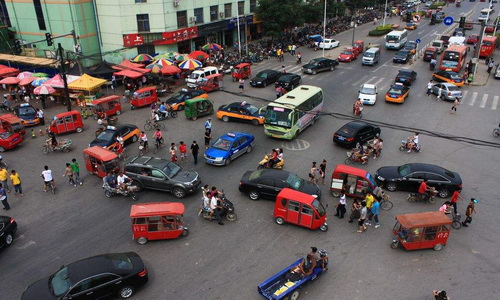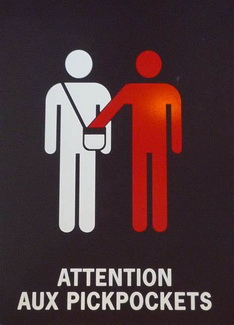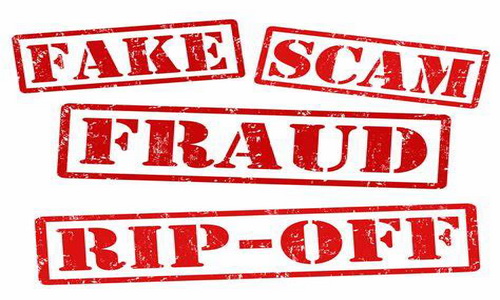Travel Safety in China
As one of the largest and most popular tourist destinations on the globe, China is no doubt a rather safe country to travel around. Visitors shall concern less on the violent crimes but more on petty theft. As with any country, travelers to foreign places shall always take precautions against some non-violent issues, such as pickpocketing, shopping scams, disordering traffic and dietetic hygiene.
Don't let stereotypes of street robbery in Paris get in the way of your dreamy China tour. Statistically, China is by and large a country of lower crime rate compared with many western nations like USA, Spain, France and Mexico. In China, you would feel quite safe and comfortable hanging out at the streets at night, while it might be a much risky experience in your hometowns.

Violent crimes like robbery, rape and mugging particularly targeted against foreigners is very rare to see. More likely, travelers might become the victims of thefts and scams. For solo travelers, China could be one of the most friendly and ideal countries to hunt for a wonderful adventure.
Regarding to safety, you should focus more on Chinese traffic. It is almost impossible for foreign travelers to drive in China with their international licenses, and the greatest danger involving with Chinese traffic is certainly crossing the road. The traffic could be overwhelming and chaotic as drivers will not always observe traffic rules. Motorcycle gallops through the vehicle stream, and some taxi drivers in big cities move fast and aggressively.

Chinese people get used to crossing the streets by waiting at intersections for the vehicles to stop no matter whether it is a right time to go. Even the green light is on, it does not always mean it is safe to cross. You should look both left and right, and note the bigger or dashing vehicles that need more time to stop. Perhaps the most reliable way to cross a road is to follow the flocks of locals. When taking a taxi, you can request the driver to move slower and fasten the seat belt if there is one. Cycling on China urban road is not advised.

Outright robbery is rare, while pickpocketing is very common in China. Nearly everyone would suffer one or two thefts throughout their lifetime. Relatively, foreigners have less chances to be the victims of pickpocketing as committing a crime against a foreigner is considered as a performance degrading the country's social ethos, and criminals may confront with more harsh punishments.
High-risk places for pickpockets in China are usually touristy-areas and crowded areas like commercial streets, markets, trains and bus stations. For example, when queuing up in line to get a ticket, you will notice that Chinese people do not care about personal space and tend to catch up closely. Thieves would take advantage of that to pick your back or side pockets. The rule of thumb is never stashing any valuables like wallet, phones or cash in a backpack or a back pocket.
Meanwhile, if finding yourself in the middle of a crowd bumping each other to board the train, subway or bus, you shall be especially wary of pickpockets. On a train ride, you need to keep your valuable with you at all times and make sure your luggage is within your eyesight. Moreover, when dinning in some crowded restaurants, it is foolish to hang your bags unattended on the seat back since they might be easily snatched up when you lower your guard down. Like what Chinese do, hold your bags on your laps when eating.
Busy touristy places like Wangfujing Street of Beijing and Nanjing Road of Shanghai, are swarmed with scams targeted at foreign travelers. Solo male visitors might get accosted by some well-dressed young women who ask for a chance for photograph or English practice. Then they would be invited to a tea house or cafe to pay for the sky-priced bill where the girls would take a commission from.

Or clueless foreign travelers would be ripped off at airport or train stations (since they would be viewed as easy-to-fool newcomers) by taxi drivers who offer an unbelievable rate or request for an additional fee on the halfway or make fake meters. You shall always agree on a price before getting into the car.
Traps are mostly widespread in tourist areas. Unpriced goods in souvenir shops would be overcharged, and hidden extras are added into your restaurant bill. There are many unexpected tourist traps and scams that first-time visitors can hardly ward off. Read more on Chinese scams and ways to bypass them.
It seems that westerns are likely to have more food allergies while Chinese are exceedingly bold to try all edible ingredients. It is normal for foreigners to have loose bowels after they take in some spicy and greasy food like hot pot. It doesn't mean these foods are not clean or sanitary. Actually, your stomach just needs some time to acclimatize to these foreign foods, too.

Street food experience is a must in cities like Beijing, Xian, Shanghai, Chengdu and Hong Kong. Though some street vendors are blamed unsafe, you should give it a try. Choose restaurants and vendors that look busy and clean, and stay away from ones with clearly dirty corners. If traveling with a tour operator, eating in China would be easy. Your insider guide of each city is able to find a decent and authentic restaurant catering to your taste.









